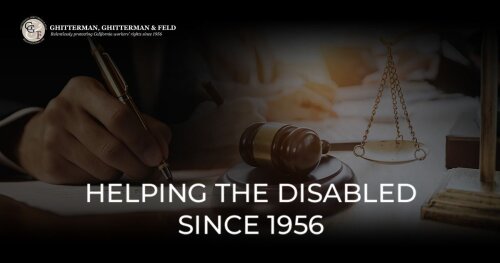Best Drugs & Medical Devices Lawyers in Vermont
Share your needs with us, get contacted by law firms.
Free. Takes 2 min.
Or refine your search by selecting a city:
List of the best lawyers in Vermont, United States
About Drugs & Medical Devices Law in Vermont, United States
Drugs and medical devices law in Vermont covers the regulations, distribution, use, approval, and liability of pharmaceuticals and medical devices offered to consumers in the state. These laws work in conjunction with federal regulations such as those put forth by the Food and Drug Administration (FDA). Vermont enforces statutes and rules to ensure that medications and medical equipment are safe and effective for patient use, while holding manufacturers, distributors, prescribers, and sellers to high standards. The law also covers consumer protection, product liability, healthcare provider responsibilities, prescription requirements, and reporting of adverse events.
Why You May Need a Lawyer
Individuals and businesses in Vermont may need legal assistance regarding drugs and medical devices for several reasons. Common situations include being harmed by a prescription drug or medical device, disputes over prescription errors, suspected medical malpractice involving drugs or medical equipment, facing regulatory compliance issues, or receiving notice of a recall. Manufacturers and distributors may need help with liability defense, FDA compliance, or dealing with product seizure. Healthcare professionals can also require representation in disciplinary matters related to drug prescribing or device use. A lawyer can protect your rights and help you navigate the complex interplay of federal and state laws affecting drugs and medical devices in Vermont.
Local Laws Overview
Vermont follows both state and federal regulations regarding drugs and medical devices. The Vermont Department of Health, Board of Medical Practice, Board of Pharmacy, and professional licensing agencies oversee many facets of drug and medical device use across the state. Vermont law includes strict requirements for the prescription, distribution, and sale of controlled substances, and outlines legal processes for reporting adverse reactions or defective medical equipment. State law also addresses marketing practices, limits certain promotions to healthcare providers, and sets specific requirements for record keeping. In addition, Vermont has statutes related to product liability, allowing harmed consumers to seek compensation for damages caused by unsafe drugs or devices.
Frequently Asked Questions
What should I do if I am injured by a drug or medical device in Vermont?
If you are injured, seek immediate medical attention and document your injury. Preserve any evidence such as packaging, prescription information, or the device itself, and contact a qualified attorney with experience in product liability or medical device cases.
Are there time limits for filing a lawsuit regarding drug or device injuries in Vermont?
Yes, Vermont law imposes strict timeframes known as statutes of limitations. These usually begin when the injury is discovered or reasonably should have been discovered. Consulting a lawyer promptly is important to protect your rights.
What is product liability, and how does it apply to drugs and medical devices?
Product liability refers to the legal responsibility of manufacturers, distributors, or sellers for injuries caused by defective products. If a drug or medical device is proved to be defective in design, manufacturing, or labeling, those harmed may be entitled to compensation.
How does Vermont regulate prescription drugs?
Vermont law requires that prescription drugs be dispensed only by licensed pharmacists following a valid prescription. Strict regulations apply to controlled substances, with oversight from the Vermont Board of Pharmacy and the Department of Health.
Who oversees drug and device safety in Vermont?
At the state level, the Vermont Department of Health and professional licensing boards oversee safety and compliance. Nationally, the FDA enforces drug and device safety, while Vermont authorities handle local enforcement and complaints.
Can I sue a doctor or pharmacist for a prescription error?
Yes, if the error results in harm and can be attributed to negligence, you may have a claim for malpractice or negligence against the healthcare professional or pharmacy involved.
Are class action lawsuits allowed for drug or device injuries in Vermont?
Yes, Vermont residents can participate in class action lawsuits involving drugs or medical devices where there are multiple victims with similar claims against a manufacturer or distributor.
Does Vermont have laws about reporting side effects or defective devices?
Yes, healthcare professionals and facilities are required to report adverse drug reactions and defective medical devices to state agencies and, when applicable, the FDA.
What are my rights if a drug or device I use is recalled?
If a drug or device is recalled, you have the right to know about the recall, return or repair the product, and may be entitled to compensation for related injuries or medical costs. Legal advice can help in understanding your specific rights.
How can a lawyer help with regulatory compliance for pharmacy or medical device businesses in Vermont?
A lawyer can help interpret complex regulations, develop compliant policies, assist with responding to agency investigations, represent you in hearings, and ensure all necessary licenses and approvals are in place.
Additional Resources
- Vermont Department of Health: Regulates drugs, medical devices, and oversees public health issues - Vermont Board of Pharmacy: Licenses and oversees pharmacists and pharmacy operations - Vermont Board of Medical Practice: Regulates medical professionals prescribing drugs or using medical devices - Food and Drug Administration (FDA): Responsible for federal regulation of drugs and devices - Office of the Vermont Attorney General: Handles consumer protection issues - Vermont Medical Society: Offers resources for healthcare professionals - Legal aid organizations and local law libraries: Provide basic legal information and referrals
Next Steps
If you believe you have a legal issue related to drugs or medical devices in Vermont, begin by gathering all relevant documentation including prescription records, medical bills, injury evidence, and correspondence with healthcare providers or manufacturers. Write a detailed timeline of events. Consult with a Vermont attorney experienced in drug and device law, medical malpractice, or product liability. Consider contacting relevant state agencies for additional guidance if needed. An attorney will evaluate your situation, explain your rights, and help you decide on the best path forward, whether it is pursuing compensation, defending against an allegation, or ensuring regulatory compliance for your business.
Lawzana helps you find the best lawyers and law firms in Vermont through a curated and pre-screened list of qualified legal professionals. Our platform offers rankings and detailed profiles of attorneys and law firms, allowing you to compare based on practice areas, including Drugs & Medical Devices, experience, and client feedback.
Each profile includes a description of the firm's areas of practice, client reviews, team members and partners, year of establishment, spoken languages, office locations, contact information, social media presence, and any published articles or resources. Most firms on our platform speak English and are experienced in both local and international legal matters.
Get a quote from top-rated law firms in Vermont, United States — quickly, securely, and without unnecessary hassle.
Disclaimer:
The information provided on this page is for general informational purposes only and does not constitute legal advice. While we strive to ensure the accuracy and relevance of the content, legal information may change over time, and interpretations of the law can vary. You should always consult with a qualified legal professional for advice specific to your situation.
We disclaim all liability for actions taken or not taken based on the content of this page. If you believe any information is incorrect or outdated, please contact us, and we will review and update it where appropriate.
Browse drugs & medical devices law firms by city in Vermont
Refine your search by selecting a city.










